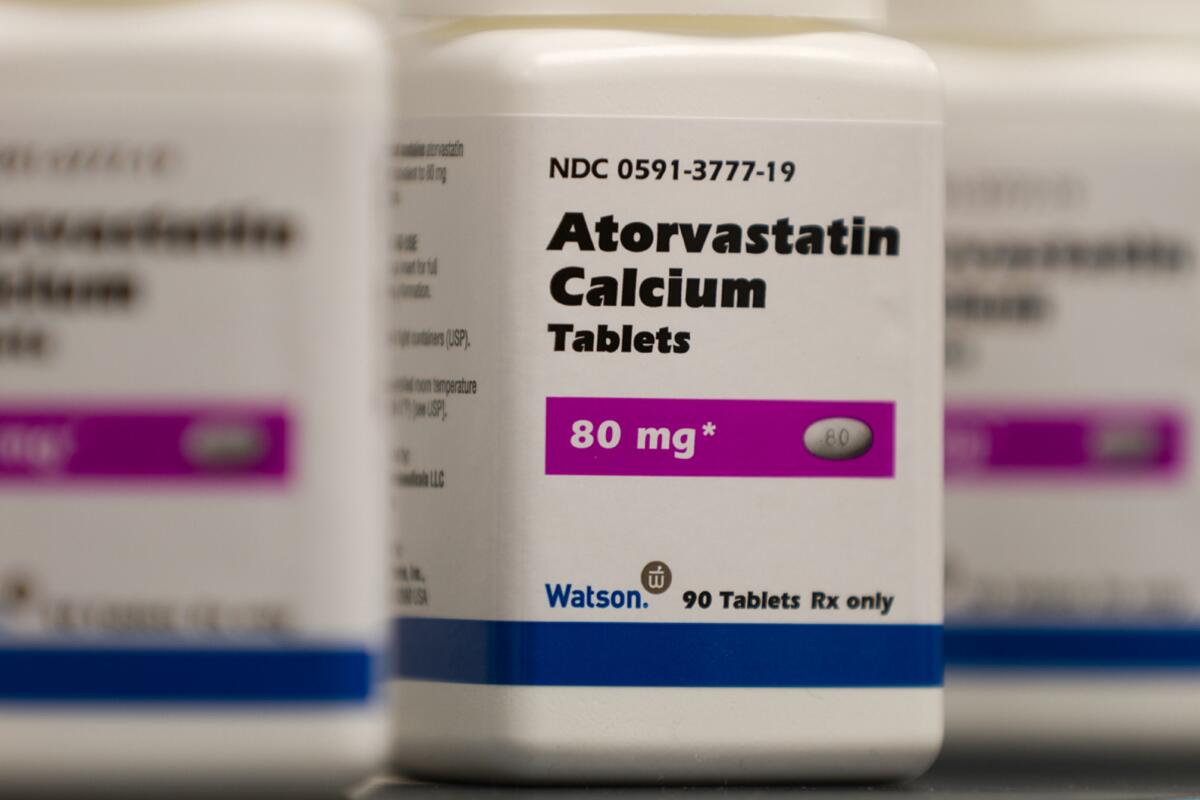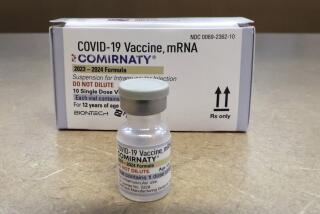A second opinion on statins

- Share via
According to two respected medical organizations, up to twice as many of us — nearly a third of all adults — should be taking statins to avoid heart attack and stroke. But statins, the potent cholesterol-lowering medications of which Lipitor is the most famous brand name, also are associated with some difficult side effects, including most notably muscle pain. And once prescribed, they are generally taken for the rest of one’s life.
Last week, the American Heart Assn. and the American College of Cardiology concluded that the drug should be prescribed for people with at least a 7.5% chance of having a heart attack within the next decade, a lower threshold than before. The groups devised an online calculator based on various factors, including age, gender and cholesterol levels, to determine that risk. But the new advice sparked immediate controversy, and already there are complaints that the calculator might overrate people’s risks.
It’s hard to imagine a more important public health topic than preventing heart attacks. Heart disease is the No. 1 killer in this country, and strokes, which statins also help prevent, are a major cause of death as well.
The report was written by a panel of doctors appointed by the two organizations. Some critics have accused it of pushing pills in ways that help the pharmaceutical industry. But the panel, which spent years examining studies on the issue, has been widely praised for recommending that doctors determine their patients’ overall risk of having a heart attack or stroke, rather than simply trying to lower cholesterol levels to a preset target. There’s little evidence, the panel concluded, that lowering LDL, or “bad” cholesterol, to one number for everybody saves any lives. In addition, their recommendations would lead to far less use of some non-statin cholesterol-lowering drugs for which the panel found little evidence of reduced heart attack rates.
Another critic of the new recommendations, Marvin M. Lipman, the chief medical advisor at Consumers Union, says that although statins are known to greatly reduce fatalities among people with heart disease or at very high risk of heart disease, there is a lack of hard evidence when it comes to people with a risk of less than 10%. Meanwhile, the panel now says it will reexamine its risk calculator after experts alleged that it contained flaws that would identify millions of people as “at risk” when they’re not.
These are exactly the kinds of complicated issues that the U.S. Preventive Services Task Force excels in examining. Before the nation embarks on a radical shift that could double the number of people taking statins, this independent, congressionally authorized group should deliver a second opinion.
More to Read
A cure for the common opinion
Get thought-provoking perspectives with our weekly newsletter.
You may occasionally receive promotional content from the Los Angeles Times.









